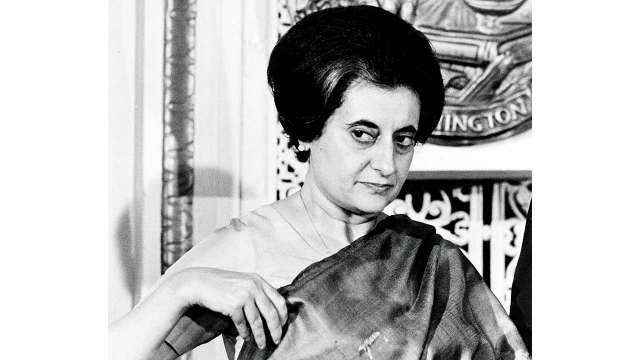Hours after liberation of Bangladesh, Indira Gandhi wanted to take over Pakistan, New book claims
Shares

NEW DELHI - Hours after the liberation of Bangladesh in 1971, Prime Minister Indira Gandhi wanted to take over Pakistan at the prodding of Soviet President Leonid Ilyich Brezhnev, a new book has claimed.
It is based on the notes of G Parthasarathi, policy advisor to the then PM, and authored by his former bureaucrat son Ashok Parthasarthi. DNA has exclusive excerpts of the book titled GP:1915-1995 that will release by March-end.
A meeting of the Cabinet Committee on Political Affairs (CCPA) held on December 16, 1971, even consented to her plan to direct the Army to march to Peshawar and annex what was then West Pakistan, claims the book.
The excerpts also reveal that all CCPA members, except PN Haksar, the PM's principal secretary, were in favour of reversing Partition.
Armed with Brezhnev's top secret telegram, received at the PMO around 1 am of December 16, 16 hours before Pakistan's surrender in Dhaka, Gandhi, as per the book, asked Army Chief Sam Manekshaw: "Sam, How long will it take you to reach Peshawar?". Sam shot back: Three days Madam."
Ashok, who was Science and Technology Advisor to the PM, was also present in the meeting along with his father, reveals that Gandhi told Sam: "You seem very sure of yourself."
He replied: "Madam, as we saw the collapse of Pakistan in the East, we in Army Headquarters were sure that you and your colleagues were most likely to ask us the question, you have posed to me. So we did our home work and are fully ready."
All those present, including ministers, secretaries concerned and service chiefs, were in favour of annexing Pakistan, till she turned to Haksar, who opposed the idea.
He wanted to know if India will rule West Pakistan. "If so, initially, the people of West Pakistan will all be with us, shouting slogans like 'down with Yahya Khan, down with Tikka Khan'. Hindus and Muslims are brothers," Haksar said.
But six months later, the same people will be shouting 'down with the Indian Army, Hindus go back', he continued.
The Soviet President's telegram had prodded Gandhi to take the crucial decision and expressed his support.
Haksar was countered by Defence Minister Jagjivan Ram, who said that he didn't want annexing West Pakistan, but return of the occupied areas of Jammu and Kashmir.
After hearing everyone, Gandhi said she will think about it. As the meeting broke, Ashok recalls he went with the PM to her residence and pleaded to her to go ahead, the book claims.
"We will never get another chance in history," he told her. She replied that it was a monumental decision. But at 8 pm, the All India Radio announced the declaration of ceasefire, stamping out any possibility of the Indian Army marching to Peshawar.
Parthasarathi senior, a multifaceted diplomat popularly known as GP, is also son of Sir Gopalaswami Ayyangar who had served as Kashmir's PM during 1937-43. The book also reveals that Ayyangar had undertaken a secret visit to Srinagar on September 23, 1947, and successfully persuaded Dogra King Hari Singh to accede to India, reversing the familiar theory that the invasion of Pakistan raiders had forced the King to sign the Instrument of Accession.
In 1971, GP had become Vice Chancellor of Jawaharlal Nehru University, but continued to have access to crucial Cabinet meetings.
The book's foreword has been written by former President Pranab Mukherjee.
